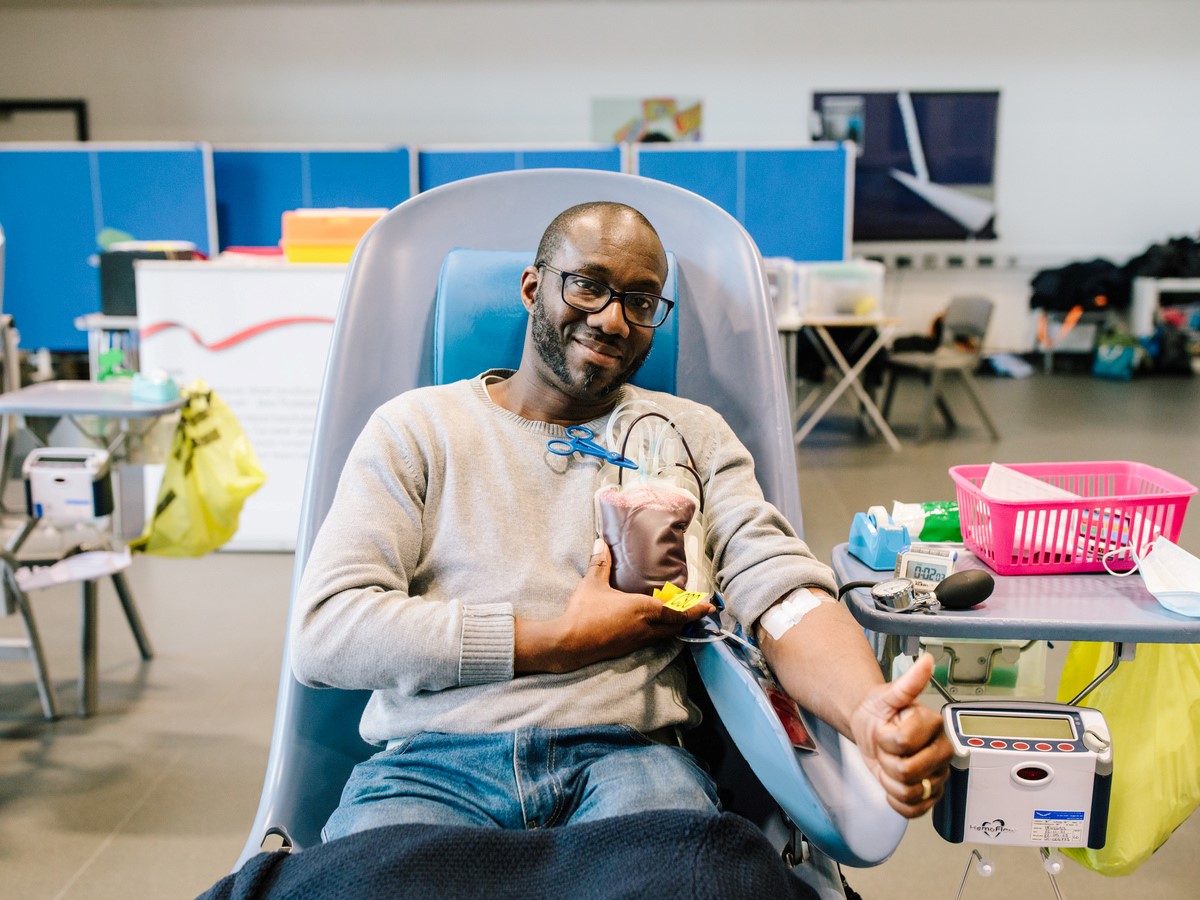First patients with inherited blood disorders to get world-first NHS test to curb transfusion side effects
 From today, thousands of people with sickle cell disorder and thalassaemia in England will have access a world-first ‘blood matching’ genetic test on the NHS to better match their future blood transfusions, reducing the risk of side effects and offering more personalised care.
From today, thousands of people with sickle cell disorder and thalassaemia in England will have access a world-first ‘blood matching’ genetic test on the NHS to better match their future blood transfusions, reducing the risk of side effects and offering more personalised care.
The NHS today becomes the first healthcare system in the world to provide a new blood group genotyping test which is set to transform care for patients living with sickle cell disorder and thalassaemia, with almost 18,000 people in England now being eligible.
The tests will be carried out at NHSBT’s Molecular Diagnostics department in Bristol.
How will the tests help patients?
The DNA analysis of a patient’s blood groups may allow for more accurate matching for people who need transfusions and help find the best compatible blood for patients with complex requirements. This programme will complement a separate programme to test some donor’s blood.
Live-saving transfusions are commonly used to treat rare inherited blood disorders, but around a fifth of patients develop antibodies against certain blood groups following transfusion. They can then experience delays to treatment due to the difficulty in finding enough matching blood and sometimes blood transfusion reactions.
To help improve blood-matching and reduce the risk of antibodies developing, NHS England, in partnership with NHS Blood and Transplant (NHSBT), is encouraging patients with sickle cell, thalassaemia and transfusion-dependent rare inherited anaemias to have this test taken alongside their routine hospital blood tests.
In England, there are around 17,000 people living with sickle cell disorder, with 250 new cases a year. The disorder can result in severe organ damage and intense pain if damaged red blood cells block vessels and restrict oxygen supply – it is more common in people of Black African and Caribbean heritage.
People with thalassaemia cannot produce enough haemoglobin, which is used by red blood cells to carry oxygen around the body, causing severe anaemia, which can be fatal if not treated. Thalassaemia is mainly seen in those with an Asian, Middle Eastern, Southern Mediterranean heritage, with about 800 patients in England and less than 50 new cases each year.
The blood group genotyping test will also help patients living with transfusion-dependent rare inherited anaemias, such as Diamond Blackfan Anaemia, a disorder that affects people’s production of red blood cells.
Statements
Ama's Story
 Mum Ama Aryee, aged 34, a science teacher from Cheshunt in Hertfordshire, who has sickle cell disorder, developed antibodies after emergency blood transfusions for complications from pneumonia. It’s now very challenging to find matching blood for her if she needs a transfusion – usually, there are only between two and four units of blood in the country which she could safely receive.
Mum Ama Aryee, aged 34, a science teacher from Cheshunt in Hertfordshire, who has sickle cell disorder, developed antibodies after emergency blood transfusions for complications from pneumonia. It’s now very challenging to find matching blood for her if she needs a transfusion – usually, there are only between two and four units of blood in the country which she could safely receive.
Ama said:
"The doctors and laboratory team find it very difficult to find matching blood for me. It is a worry to know that if there was an emergency and I needed blood it would not be straightforward to find enough. I try not to dwell on it but it’s there in my mind. It’s a bit scary to think about future pregnancies or problems with sickle cell, I am well aware that there’s almost no blood I can receive at the moment.
"I definitely support people getting their blood groups tested – if I’d had this test several years ago before my transfusion, I might not have antibodies now. And if this new testing could help people like me receive blood again that would be wonderful.
"The doctors, nurses and laboratory staff have been absolutely incredible at University College London Hospital – tirelessly working hard to ensure that everything goes according to plan. We are incredibly grateful."
More information
The genotyping programme uses a new testing array developed by the Blood Transfusion Genomics Consortium (BGC), an international partnership, of which NHS Blood and Transplant is a member, with critical funding from other partners such as the National Institute for Health and Care Research.
If you'd like to learn more about the programme you can find more information and resources through our website.